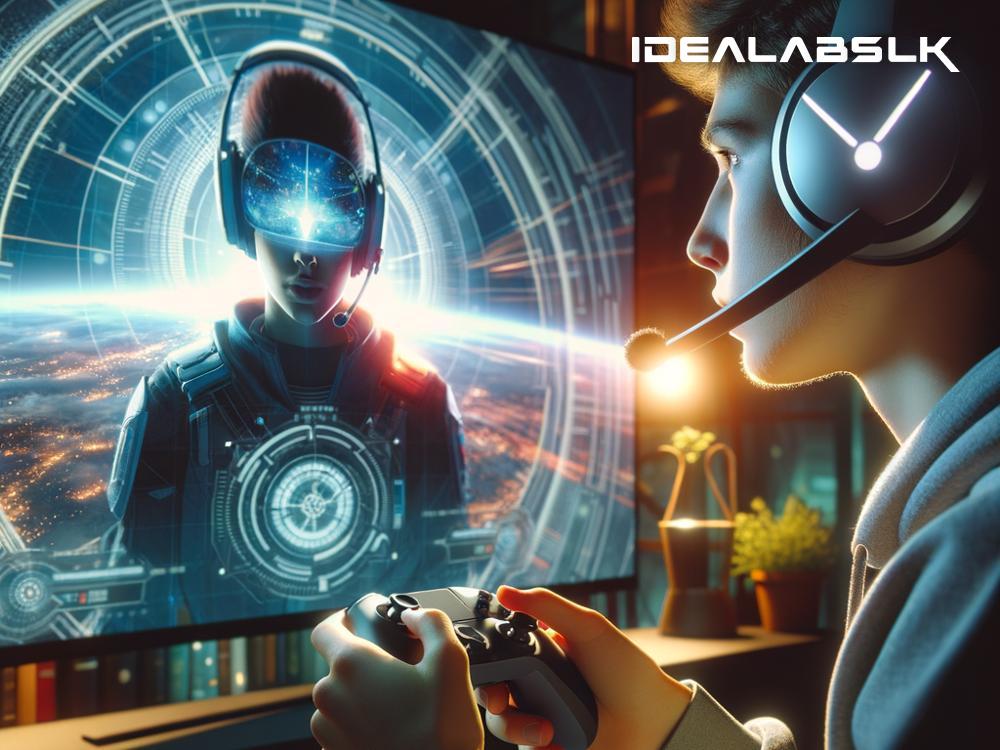AI and Voice Interaction: The Future of Voice-Controlled Games by 2025
Imagine playing your favorite video game not with a controller or even a touch screen, but using just your voice. This isn't a far-off dream—it's quickly becoming our reality, thanks to advancements in AI and voice interaction technology. By 2025, experts predict a significant transformation in the gaming industry, with voice-controlled games taking a leading role. Let's delve into how this exciting future is shaping up.
The Rise of Voice-Controlled Games
Voice-controlled gaming isn't entirely new. For years, games have experimented with using voice commands to enhance gameplay. However, these experiments often felt more like gimmicks than game-changers. That's radically changing thanks to leaps in artificial intelligence (AI) and machine learning, allowing for more sophisticated voice recognition and interaction.
Today, AI can not only understand a wide range of languages and accents but can also interpret the emotions and intentions behind our words. This breakthrough is powering the next generation of voice-controlled games—ones that are more intuitive, responsive, and immersive than ever before.
What to Expect by 2025
By 2025, we anticipate a few key developments that will push voice-controlled gaming into the mainstream:
-
Enhanced AI Understanding: AI's ability to understand and process natural language will continue to improve, making voice commands in games more fluid and less frustrating. This means games will better comprehend not just what you're saying, but how you're saying it, adding a new layer of depth to interactions.
-
More Personalized Experiences: As AI becomes more adept at recognizing player preferences and play styles, voice-controlled games will tailor themselves to each player uniquely. Imagine a game that adjusts its difficulty based on the tone of your voice, or one that remembers your favorite strategies and suggests them when you're in a bind.
-
Integration with Smart Home Devices: The line between gaming and other tech in our lives is blurring. By 2025, expect voice-controlled games to seamlessly integrate with smart home devices. Picture commanding both your game and your living room lights with the same breath, creating an ambiance that changes with the in-game action.
-
Accessibility Boost: Voice-controlled games offer a tremendous opportunity to make gaming more accessible to people who might find traditional controllers challenging to use. By 2025, these games won't just be a niche market; they'll be a vital way for everyone to experience the joy and community of gaming.
-
Greater Emphasis on Storytelling: With improved AI, games will tell stories in new and engaging ways. Imagine a game that evolves based on your vocal reactions to plot twists or one where you can have actual conversations with characters. By 2025, voice interactions could transform narrative gaming, making it more personal and immersive.
Challenges and Considerations
This exciting future isn't without its challenges. Privacy concerns loom large as games require access to microphones and potentially sensitive data. Game developers and platform owners will need to navigate these waters carefully, ensuring player trust through transparent policies and secure practices.
Additionally, perfecting AI's understanding of human speech is an ongoing battle, especially in noisy environments or for voices with heavy accents. By 2025, we expect significant progress, but it's a complex problem that won't be solved overnight.
Looking Ahead
By 2025, the gaming landscape will be transformed by the capabilities of AI and voice interaction. Games will not only listen but understand and respond in ways that are genuinely engaging and personal. As we stand on the brink of this revolution, it's an exciting time to be a gamer.
The evolution of voice-controlled games isn't just about new ways to play. It represents a fundamental shift towards more natural, intuitive interactions with our technology—breaking down barriers and opening up new possibilities for what games can be.
As we look forward to this future, one thing is clear: the marriage of AI and voice interaction is set to redefine the gaming experience. And by 2025, we'll all be speaking the language of games, quite literally.

